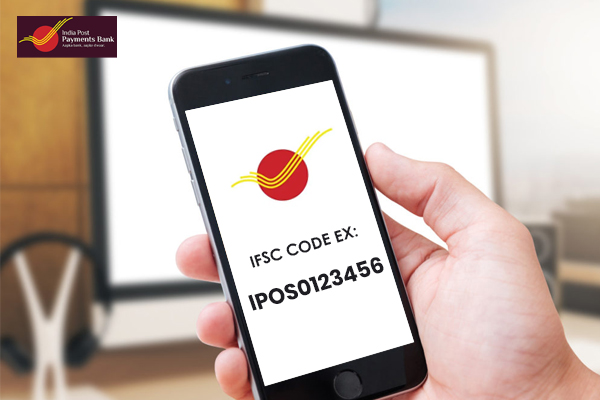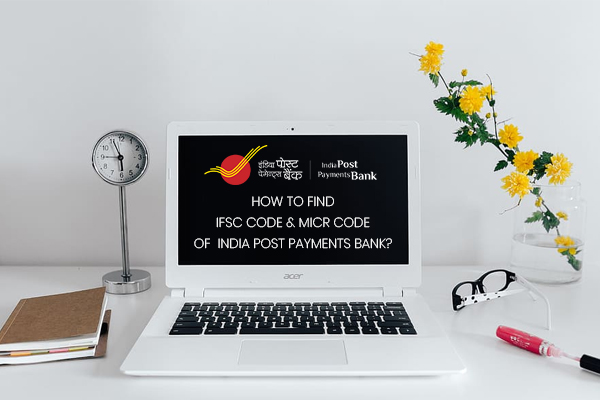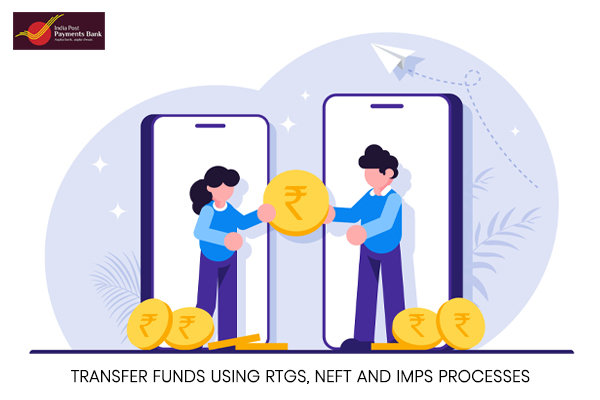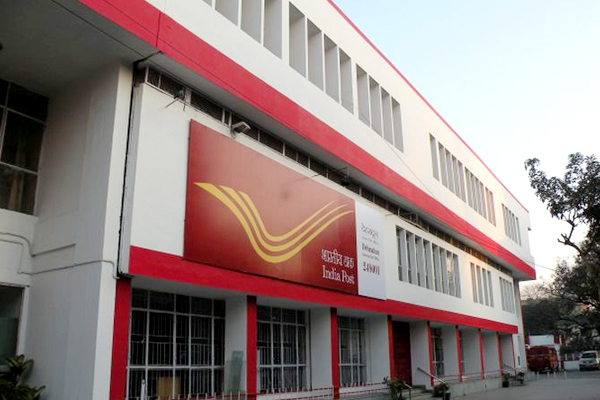 India Post Payments Bank IFSC Code and MICR Code
India Post Payments Bank IFSC Code and MICR Code
Find India Post Payments Bank IFSC Code, MICR Code and branch details for NEFT, RTGS & IMPS transactions.
 India Post Payments Bank IFSC Code and MICR Code
India Post Payments Bank IFSC Code and MICR CodeFind India Post Payments Bank IFSC Code, MICR Code and branch details for NEFT, RTGS & IMPS transactions.
 India Post Payments Bank IFSC Code Finder - Select Your State
India Post Payments Bank IFSC Code Finder - Select Your StateDid you know that the Indian postal system, i.e., India Post, has a bank? Its primary operations are similar to those of other banks. For instance, if you need to wire transfer money to an account there, you'll need the India Post Payments Bank IFSC Code.
Using online banking, you can transfer funds to an account at any branch in any location of this bank without any hassle. All you need is access to your own bank's net banking platform - with the help of either your smartphone or your laptop.
You can also send money to an account at this bank using the traditional method, i.e., by cheque, with the MICR code making the process faster. You can also make international transactions to this bank using the SWIFT Code.
Let's find out more about the India Post Payments Bank IFSC code, MICR code, and SWIFT code.
The IFSC, or the Indian Financial System Code, is a code that every bank operating in India gets from the Reserve Bank of India. According to this rule, India Post Payments Bank branches have these codes, too! Like in other banks, IPPB, too, has a unique IFSC for every branch.

Using this 11-digit code, you can send money to this bank by NEFT, IMPS, or RTGS. The code can be broken up into three parts. The first four characters stand for the bank. The last six characters represent the branch. The fifth spot with a 0 in it is for future usage.
The India Post Payments Bank IFSC Code for the Corporate Office in Delhi is IPOS0000001. The first four characters, i.e., IPOS, together form the bank code for India Post Payments bank. The next spot is filled with a 0 and is a reserved character.
The last six letters, i.e., 000001, together form the branch code for the corporate office located in Bhai Vir Singh Marg, Sector 4, Gole Market in New Delhi. This part of the code will always differ from one branch to another and is the unique part of an IFSC.
Sometimes, the best way to transfer money is by using a cheque. To clear a cheque, you need the MICR code or Magnetic Ink Character Recognition code. If someone issues a cheque from the India Post Payments Bank, the MICR code will help clear it.
This code has nine characters, and you can find it printed on the cheque leaves. When the cheque gets deposited, the recipient's bank will use the MICR code to locate the sender's bank and branch using a magnetic reader to scan the code on the cheque leaf.
Doing so allows the method of sorting to become much faster and efficient. A MICR consists of only numbers, denoting the bank code and the branch code. For instance, the MICR of IPPB's Meerut City branch is 250002016.
Another code required for money transfer to IPPB is the SWIFT code. The SWIFT code is necessary if you want to make an international transfer to an IPPB account. These codes usually range from 8 to 11 digits. The IPPB SWIFT Code, IDDIIND1, has eight digits.
Unlike MICR and IFSC codes, the SWIFT is not given to every bank. Only some banks are part of the Society for Worldwide Interbank Financial Telecommunications. Additionally, this code is not assigned individually to different branches of the bank.
Now you know that the India Post Payments Bank IFSC code, MICR code, and SWIFT code are all essential for any associated with the IPPB. But how will you be able to locate these codes? There are some simple methods of finding them. Take a look!

Finding India Post Payments Bank IFSC Code, MICR Code, and SWIFT Code on "Find Your Bank."
If you want a reliable source to find the required code for IPPB - or any other bank operating in India, you can go to Find Your Bank. Accessing the platform is really easy, as you just have to take the following steps:
There are other ways to find the India Post Payments Bank IFSC code, MICR code, and SWIFT code, too. Let's take a look.
You can find IPPB's IFSC by referring to the following:
Every IPPB account holder has a passbook that contains all necessary information regarding the account printed on the first page. This is where you will also find the IFSC.
Just like any other bank, the IPPB cheque leaves, too, have the IFSC code printed at the top of the leaf, along with other bank account-related information.
When you log in to your own net banking to make a fund transfer to a new beneficiary, you'll find a list of IFSCs for the recipient. You may also check the IPPB official website.
Since the RBI assigns the IFSC codes to banks, including India Post Payments Bank, it maintains a database of the codes available on the RBI website.
You can contact the customer care team of IPPB by calling them or visiting a branch close to you - and asking them for the IFSC you need.
If you need the India Post Payments Bank MICR code, you can use the same sources of information that will give you the IFSC. They are as follows:
To find the SWIFT code of IPPB, you can refer to the following -
Out of all the methods mentioned, Find Your Bank is considered the most convenient as all details are on a single platform.

Thanks to the digitization of all banking operations, it is now possible to transfer money to any account from the comfort of home. You can do the same to an IPPB account using the following:
Let's look at the details for each-
|
Mode of Transfer |
Limit (INR) | Transaction Amount (INR) | Intra-Bank Charges (INR) | Access Point and Doorstep Charges (INR) | Mobile Banking Charges (INR) |
| IMPS | 5-50,00,000 (Savings A/c); 5-2,00,000 (Current A/c) | Less than 2,000 | 0 | 10 | 5 |
| 2,001 to 5,000 | 0 | 20 | 5 | ||
| More than 5,000 | 0 | 50 | 10 | ||
| NEFT | 1-2,00,000 (Savings A/c), Unlimited (Current A/c) | Less than 10,000 | 0 | 2.5 | 2.5 |
| 10,001 to 1,00,000 | 0 | 5 | 5 | ||
| 1,00,000 to 2,00,000 | 0 | 15 | 10 | ||
| More than 2,00,000 | 0 | 25 | 20 | ||
| RTGS | 2,00,000-5,00,000 (Savings A/c); 2,00,000 above (Current A/c) |
2,00,000 to 5,00,000 | 0 | 25 | 25 |
| More than 5,00,000 | 0 | 50 | 50 |
For all of them, you will require the IFSC. You also have to add the beneficiary's details like account number, branch, name, etc.
Indian Post Payments Bank is a bank set up under the Ministry of Communication's Department of Post. It is entirely owned by the Indian Government. It was launched in 2017 in Jharkhand and Chattisgarh, and the number of branches has been increasing since then.

The bank offers different types of savings and current accounts. The charges for savings accounts are as follows:
| Account Type | Age Eligibility | Minimum Balance | Annual Interest |
| Regular | 10+ years | NIL | 2.50% (till 1 lakh); 2.75% (1 lakh to 2 lakh) |
| Digital | 18+ years | NIL | 2.50% |
| Basic | 18+ years | NIL | 2.75% |
For all these accounts, you’ll have to provide KYC document copies, like PAN card, Aadhar card, voter card, etc.
IPPB was registered in 2016 as a public limited government bank. As it is true in the case of any public limited company, this bank is entirely owned by the Indian Government. It follows the guidelines and regulations set by the Reserve Bank of India.
India Post Payments Bank is a nationalised bank that offers many services and banking tools with modern facilities. The bank makes it easy for you to pay bills, transfer money, and opt for other remittance services. You can also avail online and phone banking services.
If you want to open an account at India Post Payments Bank, you will have to follow the same procedure as any other bank. You will have to offer necessary KYC document copies to prove that you are an Indian resident and can easily start an account at IPPB.
Indian Post Payments Bank is headquartered in New Delhi. It is the Corporate Office, located at Bhai Veer Singh Marg on Market Road. There are 650 branches of IPPB all across the country.